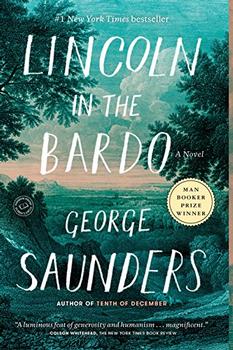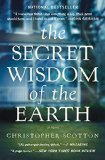Summary | Excerpt | Reviews | Beyond the book | Read-Alikes | Genres & Themes | Author Bio

Neil Smith's novel, Boo, is about teenagers but is not being marketed as a Young Adult novel by the publisher; although it could be, which is part of its appeal. And just as it is somewhat stuck between genres, Boo's characters are stuck between the afterlife and earth. Thirteen year old Boo, whose real name is Oliver Dalrymple, wastes no time in telling his readers that he died in front of his locker at middle school. He is unsure exactly how he died, that memory somehow making itself absent in his passing into his afterlife. He is now living in Town, a place roughly experienced as "up there" (America being "down there".) Town is a special place, reserved specifically for thirteen year olds; a place in which they must stay for fifty years until they "repass". It is unclear to anyone why they must stay this long, and to where they repass, or how that even happens, but nobody seems too bothered by any of that.
The story really begins when a character named Johnny Henzel arrives in Town. Johnny was also killed in front of Boo's locker. Johnny knows he was shot, but like Boo, his memory of the event is faded, and so he is angry at first, and driven to find answers about both of their deaths. Johnny knows that he was in a coma for a month before his arrival in Town, but he cannot remember the most crucial details of his death, or Boo's for that matter. He becomes fixated on a school shooter he refers to as Gunboy, and the boys and two other friends set on a search for this boy whom they suspect may have also passed into one of the thirteen zones of Town. Initially, their purpose for this journey seems straightforward, but quickly the story becomes a mystery, hinting that there is something the reader doesn't know – something that Boo doesn't know either.
The entire novel is written as a direct address to his parents. The telling of his story is an explanation of what happened both in his life and his afterlife as he discovers the truth about his death. The way he speaks to his parents reveals his personality – he is smart, kind, loveable funny, and, sadly, maybe a little misunderstood. Early in the novel, Boo reveals himself as a pariah in his former life, explaining the nickname "Boo", which was given by mean and unforgiving middle schoolers who were inspired by his pale complexion and ultra light hair color. In Town he retains his distrust of others, having learned that it is safer for him to remain quiet and at the outskirts of society.
Boo is also subtly developed through Smith's introduction of the landscape of Town. Both in Town and in America, Boo shows himself to be generous of spirit and scientifically inquisitive, referring to and conducting countless experiments (for which there is ample opportunity in Town, given its propensity for quick healing and keeping things physically the same.) In Town, Boo's discussion of Zig – or what the Townies call God – indicates his frustration with Zig's (or God's) mysterious ways, revealing just how much Boo is grounded in concrete evidence and the scientific process. He believes truth will always come from these. This philosophy becomes fascinating, because by the end of the story, Boo must stretch himself to accept that truth can come from more than just empirical evidence.
Boo and Johnny continue developing the cautious friendship they began while they were alive, carrying forward their "cool kid" (Johnny)-"not cool kid" (Boo) dynamic. But later, they break this down. Their journey to solve the mystery of their deaths pushes them to truly understand true friendship and trust.
Boo ends on a note of release and relief as the truth of their deaths is revealed. This story is one of second chances and new beginnings, of coming of age, and realizing that maybe you don't know everything you think you do. Boo and his friends' journey is one you want to discover.
![]() This review
first ran in the June 3, 2015
issue of BookBrowse Recommends.
This review
first ran in the June 3, 2015
issue of BookBrowse Recommends.

If you liked Boo, try these:

by George Saunders
Published 2018
In his long-awaited first novel, American master George Saunders delivers his most original, transcendent, and moving work yet.

The Secret Wisdom of the Earth
by Christopher Scotton
Published 2016
Timely and timeless, this is a dramatic and deeply moving novel about an act of violence in a small, Southern town and the repercussions that will forever change a young man's view of human cruelty and compassion.
Your guide toexceptional books
BookBrowse seeks out and recommends the best in contemporary fiction and nonfiction—books that not only engage and entertain but also deepen our understanding of ourselves and the world around us.